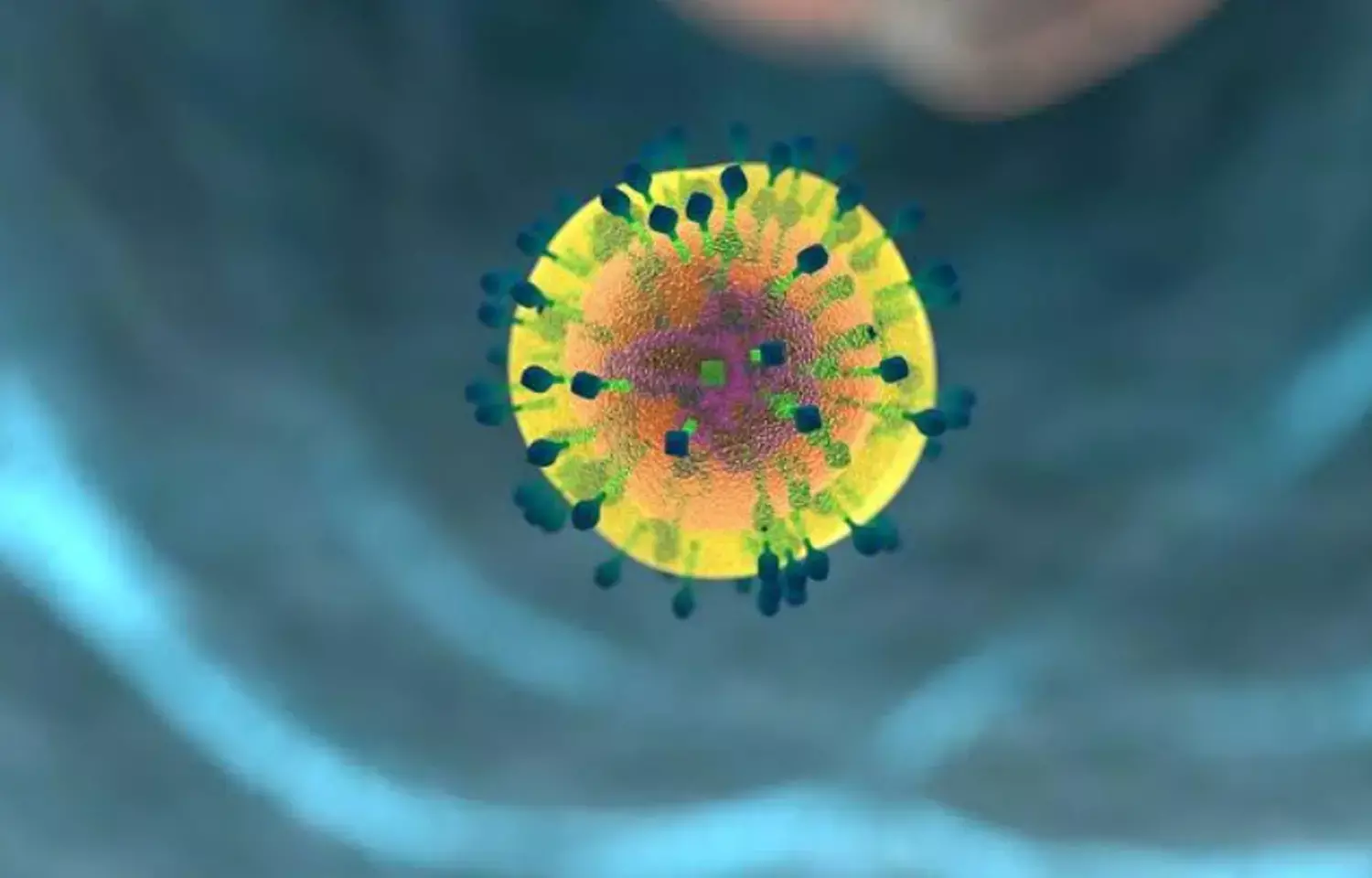- Home
- Medical news & Guidelines
- Anesthesiology
- Cardiology and CTVS
- Critical Care
- Dentistry
- Dermatology
- Diabetes and Endocrinology
- ENT
- Gastroenterology
- Medicine
- Nephrology
- Neurology
- Obstretics-Gynaecology
- Oncology
- Ophthalmology
- Orthopaedics
- Pediatrics-Neonatology
- Psychiatry
- Pulmonology
- Radiology
- Surgery
- Urology
- Laboratory Medicine
- Diet
- Nursing
- Paramedical
- Physiotherapy
- Health news
- Fact Check
- Bone Health Fact Check
- Brain Health Fact Check
- Cancer Related Fact Check
- Child Care Fact Check
- Dental and oral health fact check
- Diabetes and metabolic health fact check
- Diet and Nutrition Fact Check
- Eye and ENT Care Fact Check
- Fitness fact check
- Gut health fact check
- Heart health fact check
- Kidney health fact check
- Medical education fact check
- Men's health fact check
- Respiratory fact check
- Skin and hair care fact check
- Vaccine and Immunization fact check
- Women's health fact check
- AYUSH
- State News
- Andaman and Nicobar Islands
- Andhra Pradesh
- Arunachal Pradesh
- Assam
- Bihar
- Chandigarh
- Chattisgarh
- Dadra and Nagar Haveli
- Daman and Diu
- Delhi
- Goa
- Gujarat
- Haryana
- Himachal Pradesh
- Jammu & Kashmir
- Jharkhand
- Karnataka
- Kerala
- Ladakh
- Lakshadweep
- Madhya Pradesh
- Maharashtra
- Manipur
- Meghalaya
- Mizoram
- Nagaland
- Odisha
- Puducherry
- Punjab
- Rajasthan
- Sikkim
- Tamil Nadu
- Telangana
- Tripura
- Uttar Pradesh
- Uttrakhand
- West Bengal
- Medical Education
- Industry
Some cancer immunotherapies may lead to myocarditis and other potentially serious arrhythmias: Study

Immune checkpoint inhibitors (ICIs) have transformed cancer care by unleashing T-cells to fight tumors, but they can cause serious cardiotoxicities including myocarditis. ICI-induced myocarditis represents a new clinical syndrome because of the novelty and considerable usage of ICIs.
While it has been hard to fully define the clinical features of ICI-myocarditis, new research provides a clearer picture of the highly arrhythmogenic nature of myocarditis brought about by these inhibitors.
In a study headed by UC San Francisco researchers and published in Circulation this week, the investigators report electrocardiographic and arrhythmogenic features of ICI-myocarditis. The group utilized an online platform to establish an international registry from 49 institutions and 11 countries of ICI-myocarditis. While close to 500 cases have been collected, 125 patients with electrocardiograms at the time of hospitalization were identified. Two cardiologists analyzed the electrocardiograms while blinded to the individual case and outcome.
The results establish ICI-myocarditis to be highly arrhythmogenic and define specific electrocardiographic features that will help clinicians diagnose and prognosticate the syndrome.
The study builds on previous research by Javid Moslehi, MD, William Grossman Distinguished Professor and Section Chief of Cardio-Oncology and Immunology for the UCSF Heart and Vascular Center. His research reported on the cases of two patients with melanoma who died from fatal myocarditis that they developed after treatment with ipilimumab and nivolumab, two drug therapies used for treating melanomas.
"ICI-myocarditis is still poorly understood, but patients and physicians need to be aware of the adverse impact ICIs may have on some patients' hearts," said Moslehi. "Further studies are needed to evaluate how ECG changes in patients treated with ICIs can inform prediction and monitoring strategies for ICI-myocarditis."
The study included all of the approved ICI (totaling 9 today) but mostly concentrated on ipilimumab, nivolumab and pembrolizumab, the first three drugs approved and most widely used. The patients in the study presented a wide range of ECG abnormalities including conduction blocks, decreased voltage, and repolarization abnormalities that frequently degenerate to malignant arrhythmias.
Besides Moslehi, two other UCSF cardiologists – Mandar Aras, MD, PhD, and Alan Baik, MD, – are co-authors of the manuscript.
"This study really exemplifies the power of teamwork. We have formed a true international network with cardiologists and cardio-oncologists from around the world," said Moslehi. In particular, the group has formed a close collaboration with cardiologists at Sorbonne University in Paris, led by Joe-Elie Salm, MD. "We are now excited about the next studies using the database," Moslehi said.
https://www.ahajournals.org/doi/10.1161/CIRCULATIONAHA.121.055816
Hina Zahid Joined Medical Dialogue in 2017 with a passion to work as a Reporter. She coordinates with various national and international journals and association and covers all the stories related to Medical guidelines, Medical Journals, rare medical surgeries as well as all the updates in the medical field. Email: editorial@medicaldialogues.in. Contact no. 011-43720751
Dr Kamal Kant Kohli-MBBS, DTCD- a chest specialist with more than 30 years of practice and a flair for writing clinical articles, Dr Kamal Kant Kohli joined Medical Dialogues as a Chief Editor of Medical News. Besides writing articles, as an editor, he proofreads and verifies all the medical content published on Medical Dialogues including those coming from journals, studies,medical conferences,guidelines etc. Email: drkohli@medicaldialogues.in. Contact no. 011-43720751


